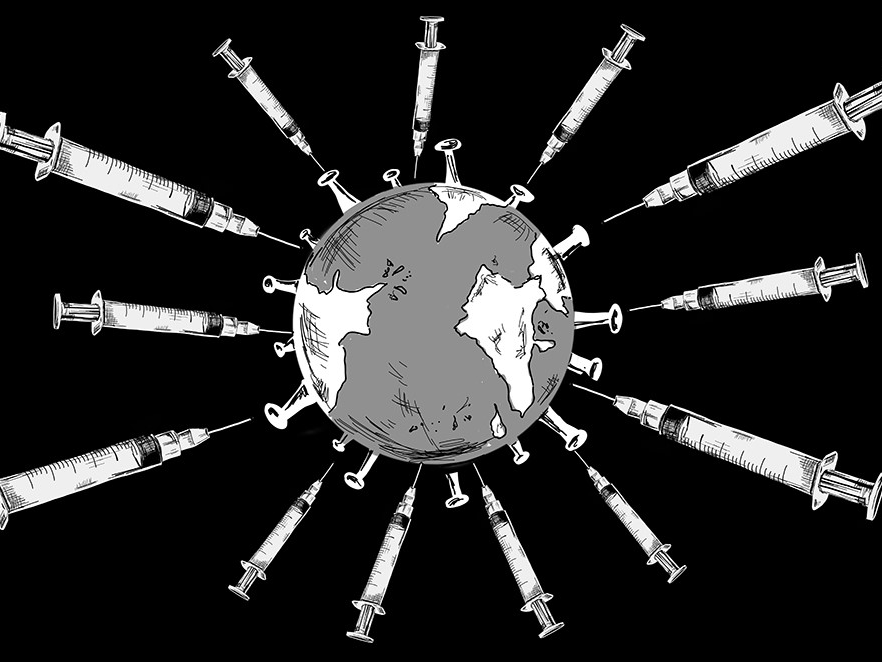From its beginning in March of last year we have reported that this pandemic, like those that have come before, has accelerated inequality across the globe.
This includes inequality in terms of wealth, income, gender, race and other dimensions. The data tells us that this trend is continuing, in fact accelerating, and this is happening in both the developed and developing world.
As we face yet more surges of the virus (in Latin America, India and some European nations), inequalities will only deepen. The uneven rollout of vaccines globally means that this pandemic is far from over; Bloomberg reports that roll out in high income countries are 25x those in the lowest income economies.
Even where vaccine supplies are secured and distribution systems are effective, there remain question marks about likely take up and efficacy levels – in some markets, this will be hampered by safety concerns, traditional belief systems and Government mistrust.
In this pandemic, women have been disproportionately negatively impacted for multiple reasons. They are more likely to work part time, to work in frontline jobs in health and education and therefore be more exposed to the virus. They are more likely to give up their careers where they are not ‘bread-winners’, they carry the out the lion’s share of unpaid labour performing childcare/family duties, and the data shows that gender-based abuse and violence has increased during this period.
In advanced economies, data shows that women have borne the brunt of household duties and homeschooling, and in turn they feel more stressed and burnt out than their male counterparts. In emerging economies, the pandemic has meant those women working in the informal economy have seen their incomes plummet. In the previous article, Dr Sarah Wenham of the LSE looked into this in more depth.
Those who are less socially mobile, from minorities, are lower-skilled or simply marginalised in society are also more negatively impacted. In India, we are currently witnessing a mass ‘reverse migration’ as workers flee cities to return to rural homes.
Being jobless and with little to no savings, they are left with little choice but to return home. Remittances have dropped significantly according to the Indian banks. The impact of prolonged crises, such as this one, means that people are less able to recover and are more vulnerable to future shocks. It is a situation that raises the spectre of civil strife.
In parallel, we are seeing the acceleration of automation and digitalisation which further threatens to displace low-skilled, manual roles.
In this pandemic, women have been disproportionately negatively impacted
What can investors and businesses do to mitigate the negative consequences?
At Actis, we have a hands-on, partnership-based approach with our portfolio companies. We have continued to focus heavily on supporting our companies throughout the pandemic, including hosting frequent sessions on knowledge exchange and best practice so company management can share experiences, insights and practical lessons.
Our companies have doubled down on:
– Health and safety protocols at places of work, including testing regimes, distancing, PPE, isolation facilities, altered shift patterns, extra medical and mental health/ wellbeing support;
– Supporting communities near and around our businesses with essentials (sanitation and medical supplies);
– Providing clear, accurate information regarding the virus and how to minimise transmission (to combat lack of information and deliberate misinformation), including targeted campaigns at women in the community recognizing infection risks are greater outside the workplace;
– Community investment funds are recalibrated to focus on income generating activities. Babilonia, our wind generation platform on Brazil, was able to double household income in the last year from egg production and honey manufacture;
– Hiring and upskilling women. Atlas, our LatAm solar generation platform, has successfully trained 800 women to install solar panels;
– Mental health and wellbeing support. The majority of our companies have developed wellbeing programs for workers. Some are offering online sessions with doctors and psychologists to workers, their families and wider community members. Most are considering this as an enduring component of their employee proposition, given rising concern over stress levels and burnout risk; and
– Looking ahead, the majority of our companies are also rethinking agile working patterns fit for the future.
This pandemic demands that all companies put into practice their commitment to creating equitable, diverse and inclusive workforces. This not only helps to build businesses that are more resilient, but also more valuable.
At Actis, we believe that values drive value – there is no time like the present to demonstrate these values.






